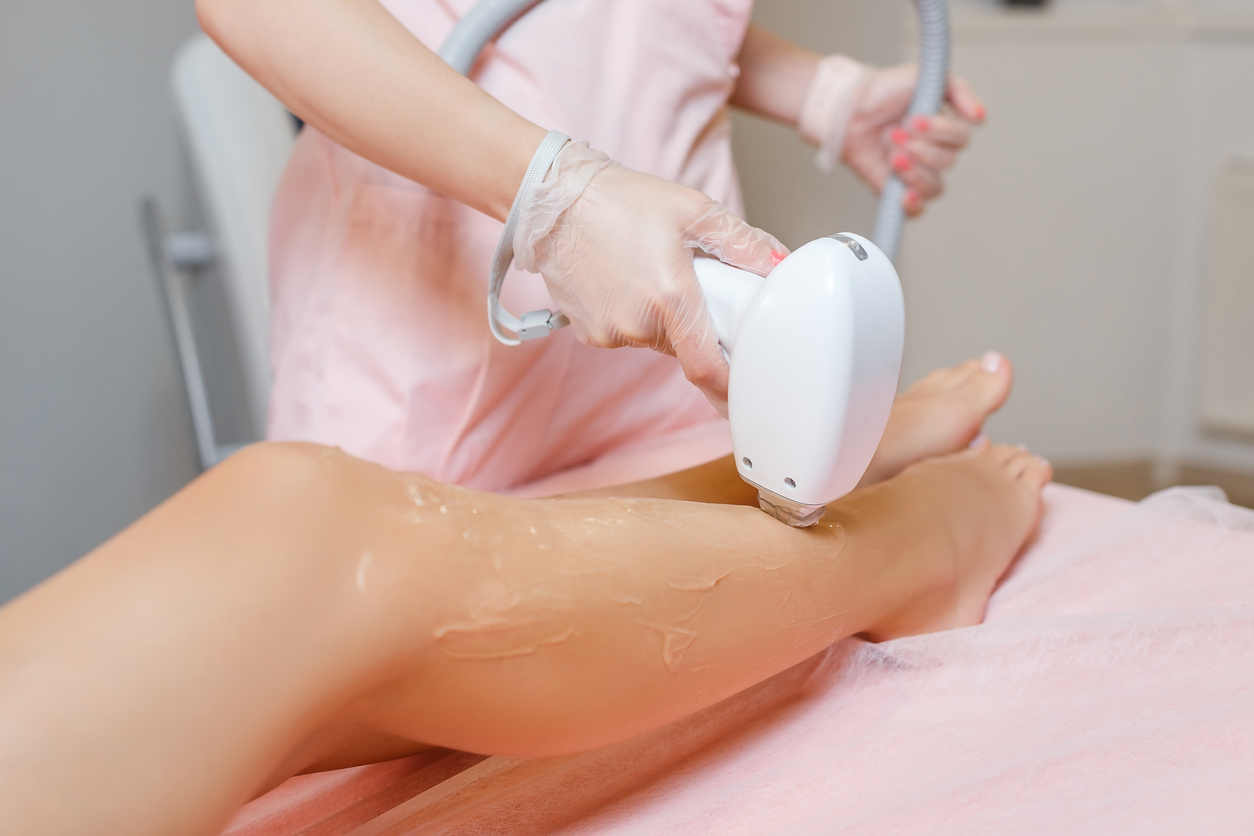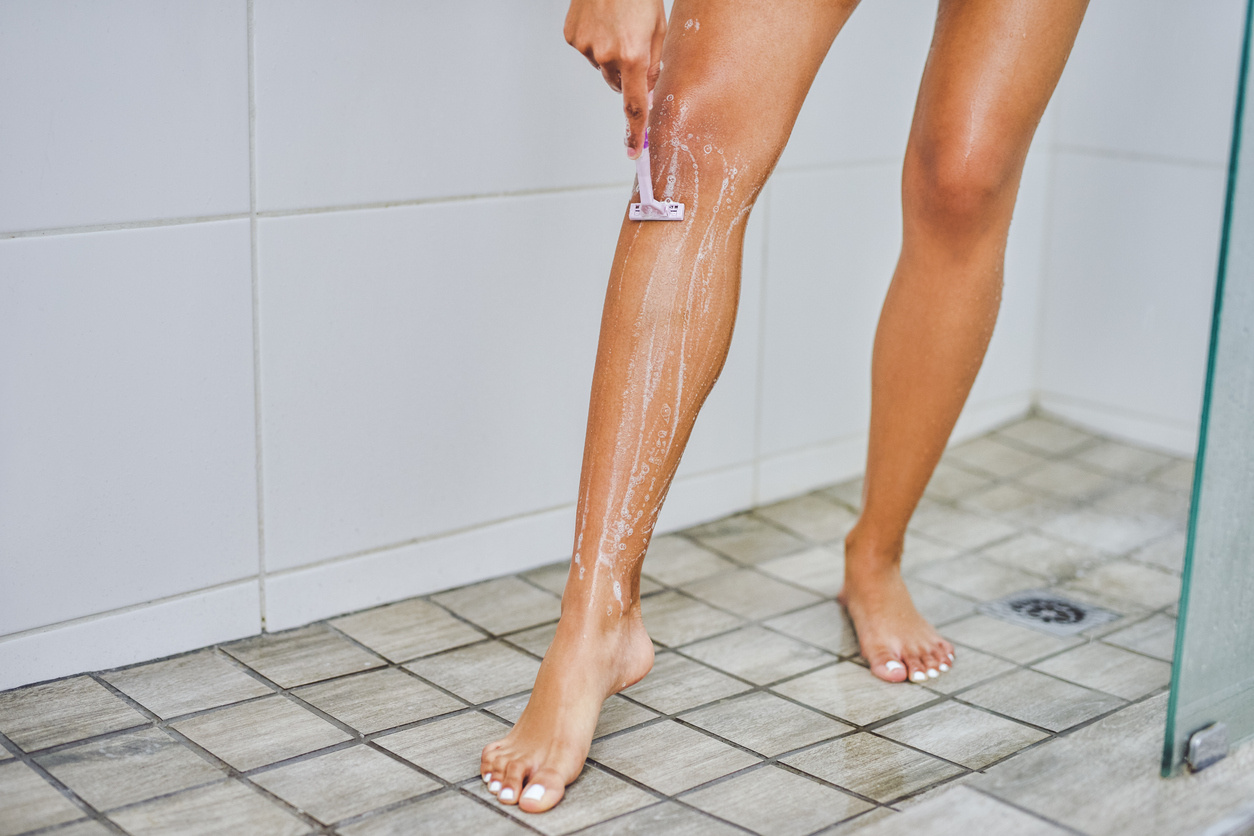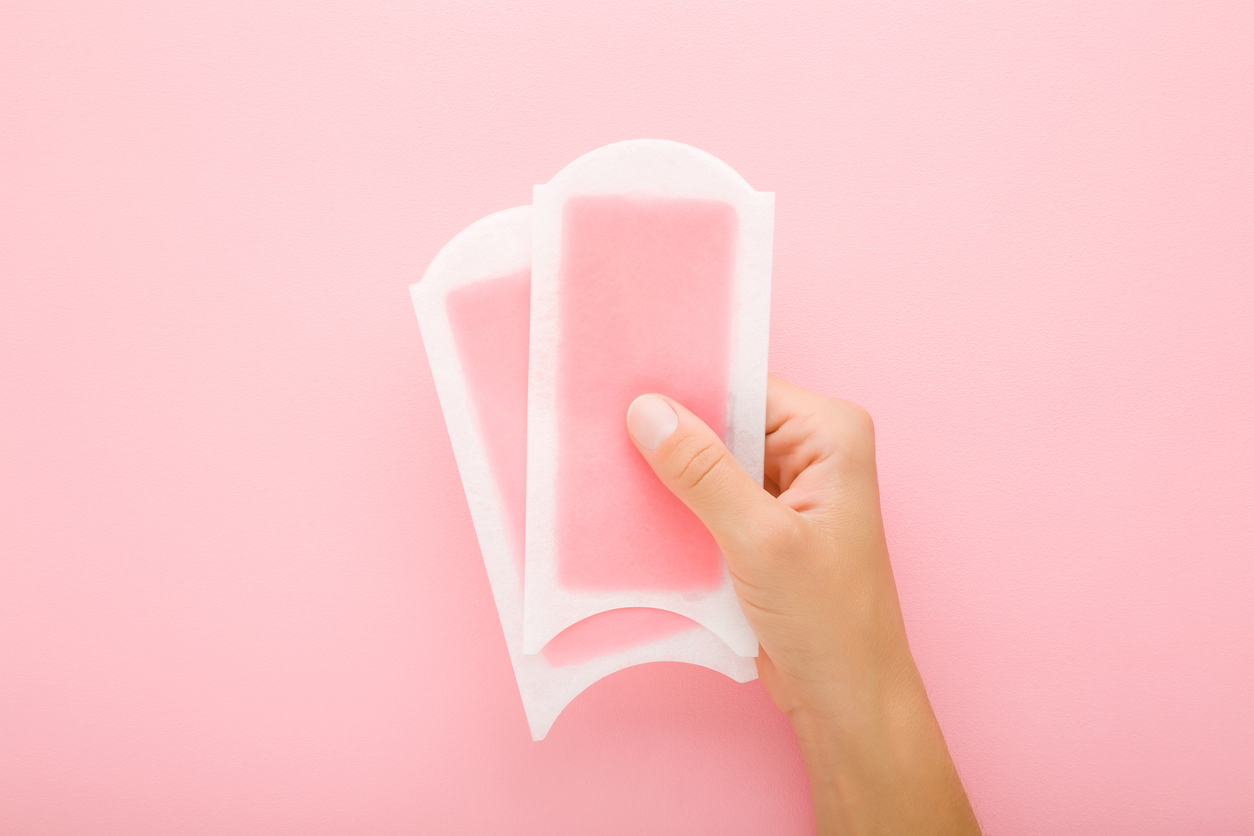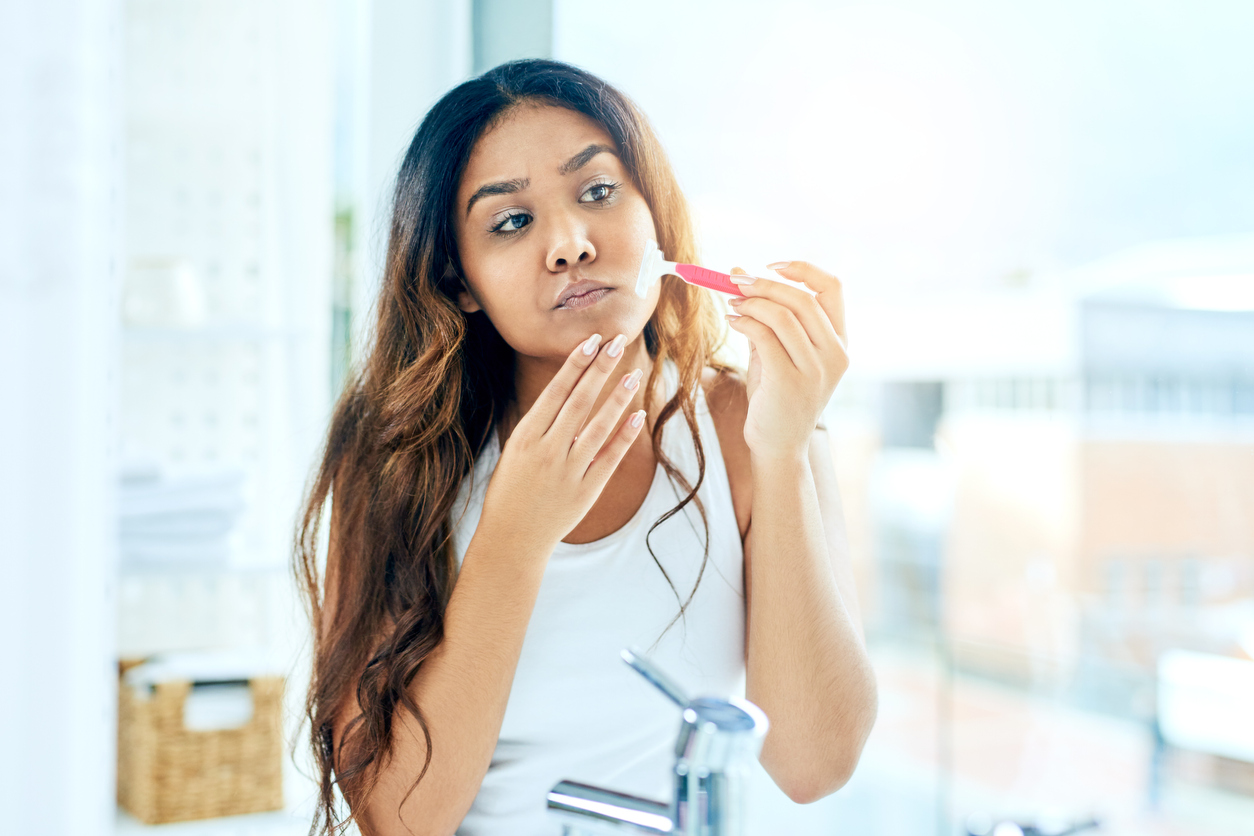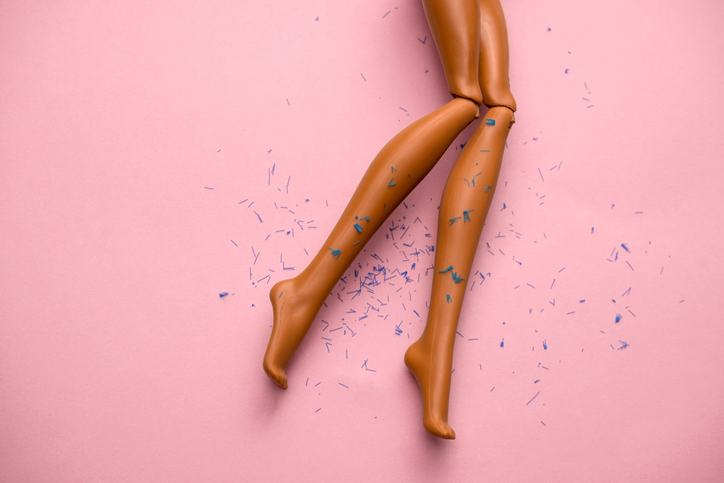Rosacea is a common skin issue, which causes redness in the face. But being careful with the beauty products you use can help to manage it.
Read on to learn what sort of products you should look for (and avoid) if you have rosacea, and find recommendations that will help keep your skin comfortable.
What is rosacea?
So what is rosacea, and do you have it? Well, it’s a long-term (chronic) skin condition that mainly affects your face. It usually starts with episodes of skin redness (flushing or blushing) on your cheeks, nose, chin and forehead.
As rosacea progresses, you may get other symptoms, including:
- burning or stinging when using water or products
- permanent redness
- broken blood vessels
- dry skin
- spots
- yellow patches
- swelling, particularly around the eyes
- thickened skin
The exact cause of rosacea is unknown, and unfortunately, there’s no cure. But there are lots of products and treatments that can manage the symptoms and help you feel better.
For more information about triggers and possible treatments for rosacea, click here.
What products should I avoid?
If you have rosacea, it’s important to avoid things that may make it worse. Common triggers include sunlight, stress, alcohol and caffeine – but what products might you want to avoid?
Generally, you won’t want to use any harsh skincare products that contain strong chemicals, perfumes or soap. And don’t clean your face with abrasive scrubs, because this can irritate your skin.
It’s also best to avoid acne treatments and creams that contain corticosteroids unless they’ve been recommended by a skin expert (dermatologist), as they can make rosacea worse.
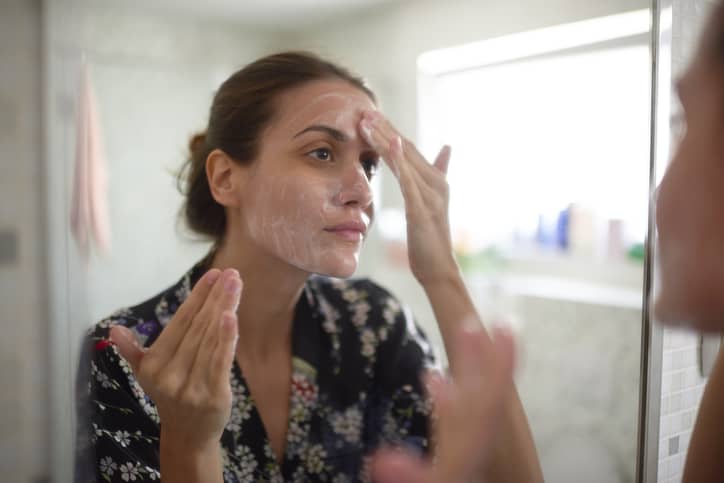
What products are best for rosacea?
It depends on your symptoms and how bad they are, but managing rosacea will probably involve combining a good skincare routine with medication from your doctor. Treatment will usually be long-term, because rosacea often keeps coming back.
The good news is that there’s a wide variety of skincare products that are suitable for rosacea – you just need to choose the best options for you.
Sun protection
Sun exposure is a common rosacea trigger, so it’s a good idea to apply sunscreen with a sun protection factor (SPF) of at least 30 every day.
Make sure the sunscreen you choose says it’s suitable for ‘sensitive skin’, as otherwise it may contain chemicals that can cause irritation. And look for a product that protects against both UVA and UVB rays.
Examples of such sun protection include the following:
-
CeraVe Hydrating Sunscreen SPF50 has a very high SPF of 50, is fragrance-free and has been created for sensitive skin
-
La Roche-Posay Anthelios Invisible Fluid SPF50+ is also made for sensitive skin and doesn’t contain perfume
You’ll find out more about choosing a sunscreen here.
Cleanser
A gentle facial cleanser is another daily product worth investing in, and there are cleansers that are designed for sensitive skin. Soap-free cleansers are recommended.
Examples of such cleansers include the following:
- Cetaphil Gentle Skin Cleanser is soap- and fragrance-free. It’s formulated for people with dry, sensitive skin
Rosacea often makes the skin dry, and non-greasy – non-perfumed emollients are recommended for this.
Green-tinted cosmetics and anti-redness creams
Green and red are what’s known as ‘complementary’ colours – this means they cancel each other out when put together. Some products for rosacea are made with a green tint, to help reduce the appearance of redness.
Examples of such creams include the following:
- La Roche-Posay Rosaliac CC Creme is made for people with sensitive, redness-prone skin. It’s designed to colour-correct and soothe skin, and has SPF30
Medicated gels
Dermatologist-recommended medicated gels can also help to relieve rosacea symptoms. Medicated gels are evidence-based and the mainstay of treatment as they are proven to work in rosacea. Availability depends on where you live – you may be able to buy them, but in some countries, you’ll need to see your doctor to get a prescription.
Oral medications can also be prescribed for severe disease.
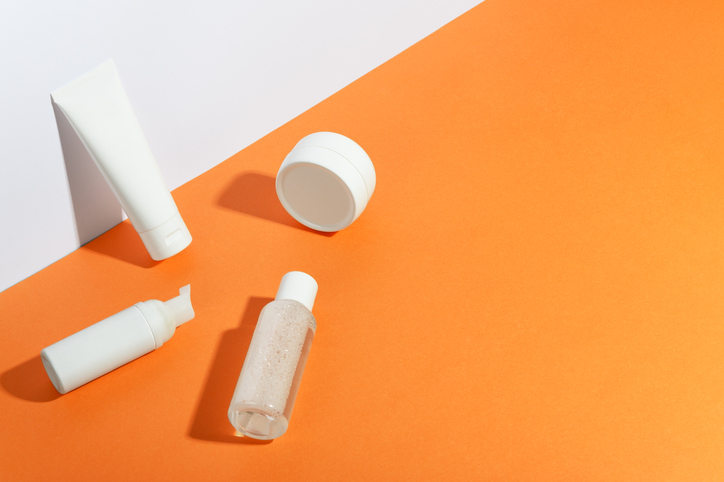
Key points
- rosacea is a long-term skin condition that affects the face, causing redness
- there’s no cure, but symptoms can be managed in various ways, including avoiding triggers, a good skincare routine and medication
- harsh skincare products should be avoided
- products for sensitive skin can help, including sunscreen, moisturisers, cleansers and anti-redness creams
Disclaimer
All links to third party products referred to in this article are being provided as a convenience and for information purpose only, and do not mean that the writer favours some products or companies over the others, nor does this constitute our sponsorship or endorsement of, or affiliation with, or responsibility for these companies. There is no or limited evidence for the use of these products for rosacea.


